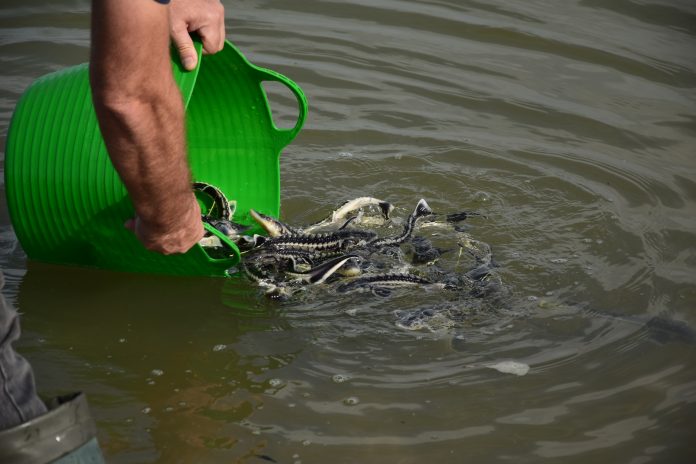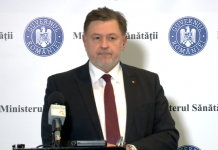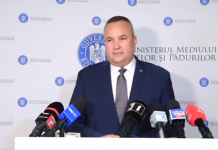
Hundreds of baby sturgeons have been successfully released into the Danube as part of a three-year international project that aims to restock the river with the critically endangered fish which is a native of the river.
The release of 700 fish happened last Friday, ahead of the Fish Migration Day, on Oct. 24, a global celebration to raise awareness on the importance of free flowing rivers and migratory fish.
It was the second release this year in the small Danube Delta town of Isaccea and was organized by the Danube Delta National Institute for Research-Development in partnership with the Worldwide Fund under the Measures project which aims to boost the dwindling sturgeon population of the Danube.
The sturgeon, a native of Europe’s second-longest river can grow up to 2.35 meters and weighs more than 100 kilograms (220 pounds), but it is an endangered species due to poaching, pollution, overfishing and climate change.
The baby sturgeons released on Oct. 15 measure are just 25 centimeters long, half the length of a new-born baby and weigh just 150 grams (5.3 ounces) until they are six months old.
The sturgeon are expected to swim toward the Black Sea where there food is more abundant and there are fewer fluctuations in water temperature are less than in the Danube.
All the sturgeons that were released have been micro-chipped in the case of an accidental capture for the project.
“Each sturgeon has an tag with the project name and a telephone number if one of the babies is accidentally captured.”
“Fishermen in the area know we are populating the area and usually release fish that are accidentally caught, especially as some know that the sturgeon is the most vulnerable species,” said Marian Paraschiv, of the Tulcea branch of the Danube Delta institute.
| It was the second release this year. In April, the WWF and the Danube Delta institute released another 300 baby sturgeons into the Danube. The critically endangered fish are one of the four remaining native Danube sturgeon species. WWF Romania which has been working to protect sturgeon and their natural habitat also released more than 1,000 young sturgeons into the river in 2019. Since the project started they have released 9,000 baby sturgeons. The young sturgeons are from the Danube, which makes it easier for them to adapt to the natural environment and to make sure that the natural populations are not exposed to further risk by introducing non-native competitors. The baby sturgeons were reared in an aquaculture facility in the eastern Danube port of Tulcea in conditions close to what they will face in the river. The Danube sturgeon was the most common species on the river. But its population dwindled after the Iron Gates hydroelectric dams were built in the 1970s and 1980s which stopped the fish reaching its spawning grounds on the Lower Danube. There is currently a complete ban on sturgeon fishing in the Danube and the Black Sea. But larger fish, which swim upstream to reproduce still fall prey to poaching because of the high price their caviar and meat fetches on the black market. WWF warns that any product from wild sturgeons are illegal and that the illegal trade harms the few remaining populations of sturgeons, local fisher farmers’ income and aquaculture facilities, which have made huge investments to produce sturgeon in line with environmental and health laws. |
The WWF says the numbers of migratory freshwater fish have dropped by 93% since 1970.
Cristina Munteanu, project manager for WWF Romania said rivers and migratory fish such as the sturgeon, trout or Black Sea shad were „extremely important” for local communities, as a food source.
„These fish play an essential role in river health, in lakes and wetlands, by creating a complex food chain.”
All the countries along the Danube: Germany, Austria, Slovakia, Slovenia, Hungary, Croatia, Serbia, Romania and Bulgaria are involved in the Measures project which began in 2018 and runs until 2021.
The project aims to protect migratory fish which are threatened with extinction.

Project managers said „sturgeons and other migratory fish species represent a historical, economic and natural heritage of the Danube and are indicators of the ecological status of its watercourses, especially concerning the function of the river as an ecological corridor. „
„Transnational management of these corridors and restoration actions, as well as restocking with indigenous species are essential.”



















